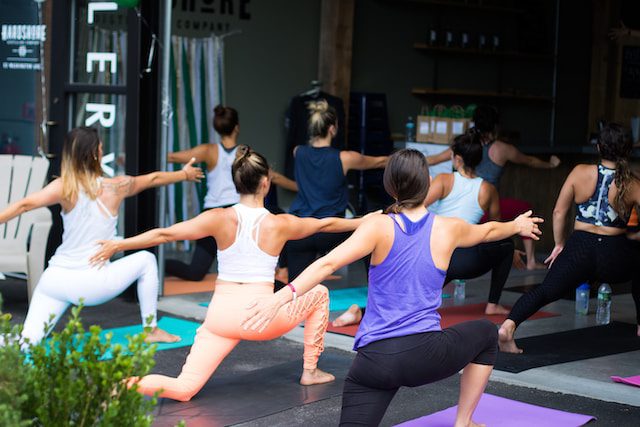Addiction recovery is a challenging journey that requires commitment, self-discipline, and lifestyle changes. While counseling, medication, and support groups provide critical assistance, complementary therapies like yoga can also have immense healing benefits. The following are five ways yoga helps on the path to addiction recovery, along with tips to get started.
Table of Contents
Reduces Stress and Anxiety
Yoga is an excellent way to reduce stress and anxiety. The practice focuses on connecting the mind and body through breathing exercises, meditation, and physical postures. When practiced regularly at a treatment center in California, yoga helps lower cortisol levels and blood pressure, which are physiological signs of stress.
The focused breathing calms the nervous system and quiets the constant chatter of the mind that leads to anxiety and worry. Additionally, nasal breathing is a natural technique that engages the body’s parasympathetic nervous system, which in turn reduces stress and anxiety levels significantly. Yoga requires being fully present and mindful during each pose, which gives a reprieve from the stressful thoughts of the past or future. The physical stretches and poses release muscle tension, allowing the body to relax. Yoga essentially enables a person to be in tune with and gain control of the mind-body connection, providing a sense of peace and equanimity.
Improves Sleep Quality
When done in the evenings, certain restorative yoga poses help calm the nervous system. Poses that gently stretch and strengthen the muscles, along with deliberate breathing, lower blood pressure and heart rate. The mental focus required during yoga helps quiet racing thoughts, making it easier to fall asleep. Meditation also clears the mind of clutter and sets the stage for a more restful slumber. Overall, yoga’s ability to induce physical and mental relaxation explains why it leads to deeper, higher-quality sleep for many practitioners.
Boosts Physical Health
The physical postures in yoga help improve flexibility, strength, balance, and posture. They work all the major muscle groups in the body, increasing core strength and stamina. The controlled breathing practiced in yoga helps improve respiratory function and oxygen circulation throughout the body. By reducing stress and tension in the body, yoga allows energy to flow more freely, bringing greater health and vitality.
Cultivates Mindfulness
The physical asanas challenge and strengthen the body, while controlled breathing calms the mind. These practices bring awareness to the present moment and clear away distractions. The meditation component trains focus and attention, promoting inner stillness. Yoga provides tools to cultivate moment-to-moment awareness, presence, and equanimity.
Offers Community Support
Classmates encourage and inspire each other to find inner strength and resilience. Friendships form as students share the journey of improvement, celebration of small wins, and understanding of setbacks. Yoga studios become hubs for people seeking both physical activity and a like-minded community. Through the ancient practice of yoga postures and breathwork, modern-day students discover the power of unity, empathy, and shared purpose that comes from a supportive community.
Getting Started with Yoga for Addiction Recovery
Yoga provides holistic therapy for recovering addicts. The following tips allow a person to ease into the practice.
Work with a teacher familiar with addiction and recovery
Start slowly; be gentle with the body and mind
Practice being non-judgmental with yourself
Try a variety of yoga styles to find what resonates
Set a regular schedule, even if brief sessions
Do breathwork and meditation anytime, anywhere
Seek personalized guidance on techniques and pacing
Consider one-on-one sessions if group classes feel vulnerable
While challenging, yoga offers the rewards of improved health, emotional balance, and inner strength. By providing healthy coping mechanisms and lifestyle changes, a consistent yoga practice can be a powerful aid through every phase of addiction recovery. Speak with the treatment center to see if this option is offered. Many facilities provide it today, as they recognize the benefits for those working to overcome an addiction.
Featured Photo by Dylan Gillis on Unsplash




